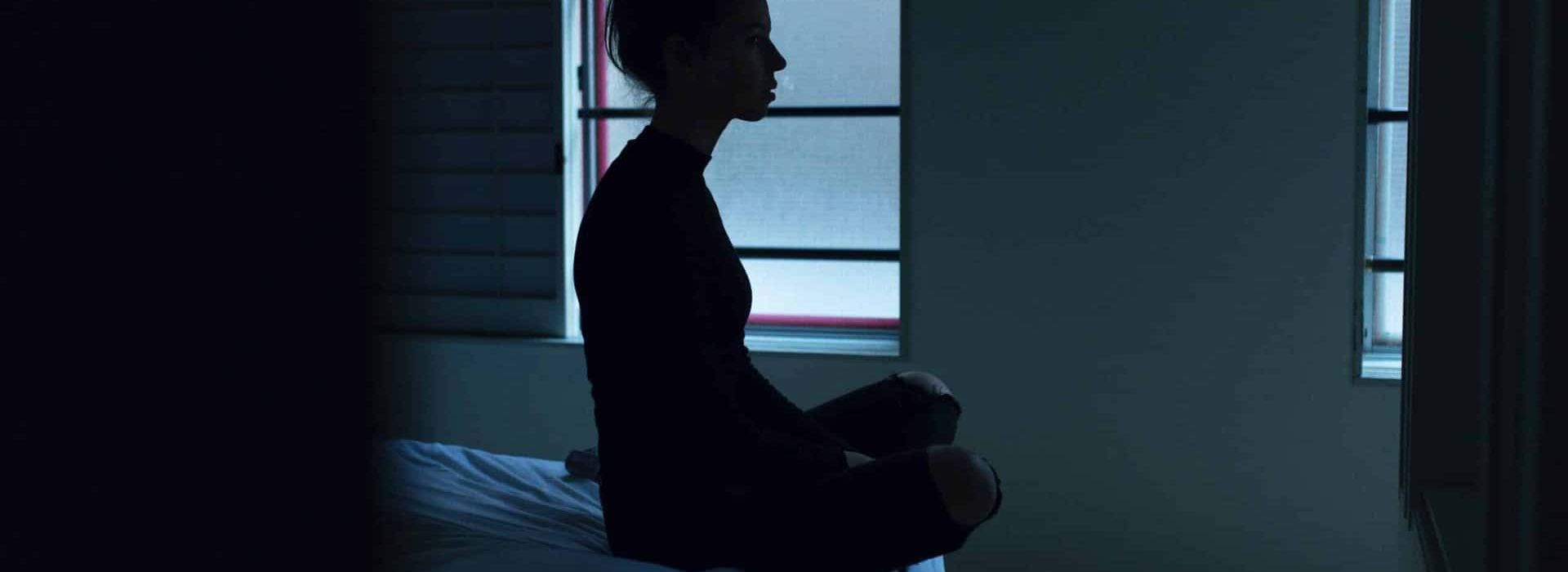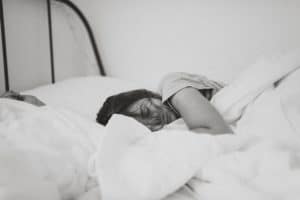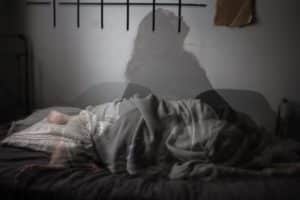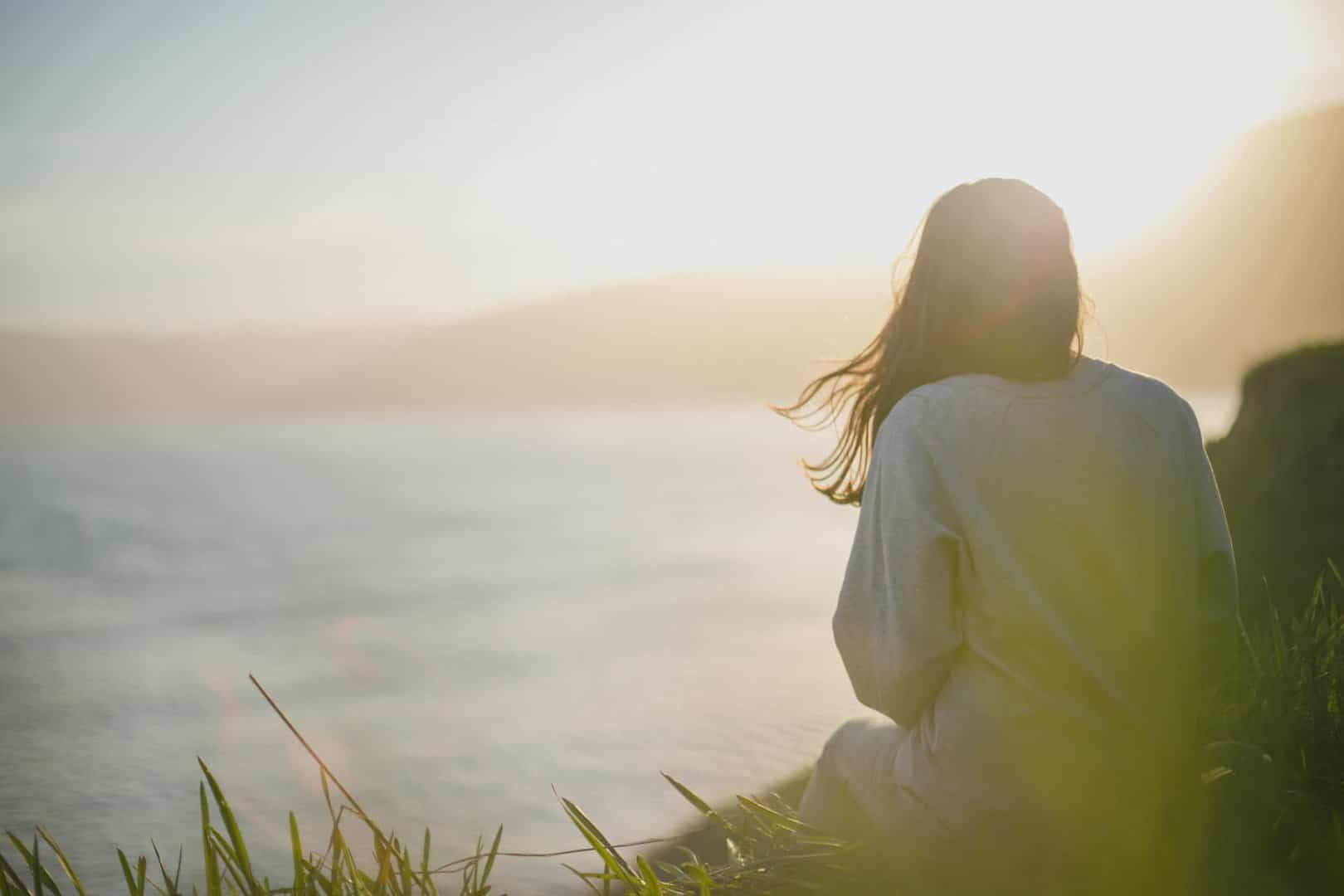Insomnia and Addiction: How to get Better Sleep in Early Recovery

Insomnia and addiction go hand in hand. Sleep disorders plague as many as 25% of Americans, and are unfortunately all too common among both people with active addiction and those who are in recovery.
Insomnia and addiction can present a vicious cycle; around half of all people who suffer from both insomnia and addiction abuse drugs or alcohol primarily to fall asleep. On the flip side, the use of many substances such as alcohol, methamphetamines, and cocaine, can cause significant sleep disturbances. Other drugs cause sleep problems as a symptom of withdrawal. Insomnia and addiction make each other worse, creating a cycle that is difficult to break.
What is Insomnia?
Insomnia is a sleep disorder that presents itself in many ways: as difficulty falling  asleep, staying asleep, or waking frequently during the night. In any of its presentations, this sleep disorder can take a horrible toll on the quality of one’s life, effecting mood, function, physical health, and the ability to regulate one’s emotions.
asleep, staying asleep, or waking frequently during the night. In any of its presentations, this sleep disorder can take a horrible toll on the quality of one’s life, effecting mood, function, physical health, and the ability to regulate one’s emotions.
insomnia is often categorized into acute and chronic. Acute insomnia refers to an episode of the sleep disorder that is usually circumstantial and most often resolves itself within a few days. Many, if not most, people experience acute insomnia at some point in their lives, such as when they cannot sleep before traveling, a big event, or due to a life stressor such as a death or divorce.
Insomnia is considered chronic when it occurs three or more nights per week for three months or more. This type of sleep disorder is usually linked to an underlying mental or physical health issue. Chronic insomnia and addiction are frequently found together.
When Insomnia and Addiction Co-Occur
 Many people are unaware of or haven’t had success with alternatives to sleep medications or illicit drugs for treating sleeplessness, and therefore find themselves dependent on them, even if the sleep they produce is not truly restful. Studies have shown that alcohol in particular actually disrupts REM sleep, keeping a person from getting truly restorative rest.
Many people are unaware of or haven’t had success with alternatives to sleep medications or illicit drugs for treating sleeplessness, and therefore find themselves dependent on them, even if the sleep they produce is not truly restful. Studies have shown that alcohol in particular actually disrupts REM sleep, keeping a person from getting truly restorative rest.
Many substances such as alcohol may make it easier for someone to fall asleep initially, but actually end up creating or exasperating insomnia. It is not uncommon for a person in early recovery from alcohol, benzodiazepines, or another drug with a sedative effect to relapse in a desperate attempt to sleep.
Many sleeping aids are both highly addictive and carry a with them a large risk of abuse. These medications include drugs like Ambien, Lunesta, or benzodiazepines such as Adivan, Klonopin, and Xanex. It is common to develop a physical dependence on these substances even when taken as prescribed. Once an dependence develops, a person is at much higher risk of developing a substance use disorder.
In the long run, substance abuse alters a person’s sleep patterns, which can continue long after they are in recovery. Substance abuse is usually a coping mechanism for a much deeper issue, such as trauma, depression, or anxiety, all of which can have insomnia as a primary symptom.
Treating Insomnia and Addiction Holistically
 There are several ways to address insomnia and addiction co-currently, the most important of which is through therapy. When substance use disorder treatment is done holistically, it addresses not only the substance abuse, but its root cause, such as underlying trauma. This is likely to be the underlying cause of the insomnia as well. When treated with therapies such as EMDR, mindfulness, and other therapeutic modalities, the root of a sleep disorder, such as a depression, anxiety, or trauma, can be managed or healed.
There are several ways to address insomnia and addiction co-currently, the most important of which is through therapy. When substance use disorder treatment is done holistically, it addresses not only the substance abuse, but its root cause, such as underlying trauma. This is likely to be the underlying cause of the insomnia as well. When treated with therapies such as EMDR, mindfulness, and other therapeutic modalities, the root of a sleep disorder, such as a depression, anxiety, or trauma, can be managed or healed.
There are also many ways to help facilitate better sleep and minimize the impacts of insomnia and addiction symptoms in early recovery. Here are a few tips:
- Go to bed and get up at the same time each day
- Cut out or cut down on caffeine. If you do consume caffeine, refrain from doing so past 2 pm.
- Create a relaxing bedtime ritual to unwind, such as taking a bath, reading, listening to soothing music, or doing a low-key craft.
- Avoid screens, loud music, and emotional conversation within the final hours before bed.
- Begin to dim lights in the hour or so before bed. This produces melatonin in your body which helps you to sleep.
- Make sure to get regular exercise (but not too close to bedtime).
- Incorporate mindfulness activities such as meditation and yoga into your daily routine.
- Utilize aromatherapy. Essential oils in a diffuser such as lavender or chamomile can help calm your nervous system before bed.
- Drinking warm milk or chamomile tea helps some people to sleep.
- Try a guided meditation or hypnosis for sleep as you are laying in bed, such as progressive relaxation.
- Keep a sleep diary to try to identify triggers for sleeplessness.
*Disclaimer: this article is not intended to be a substitute for medical advice, diagnosis, or treatment. It should not be used in place of advice by a qualified medical professional.*

